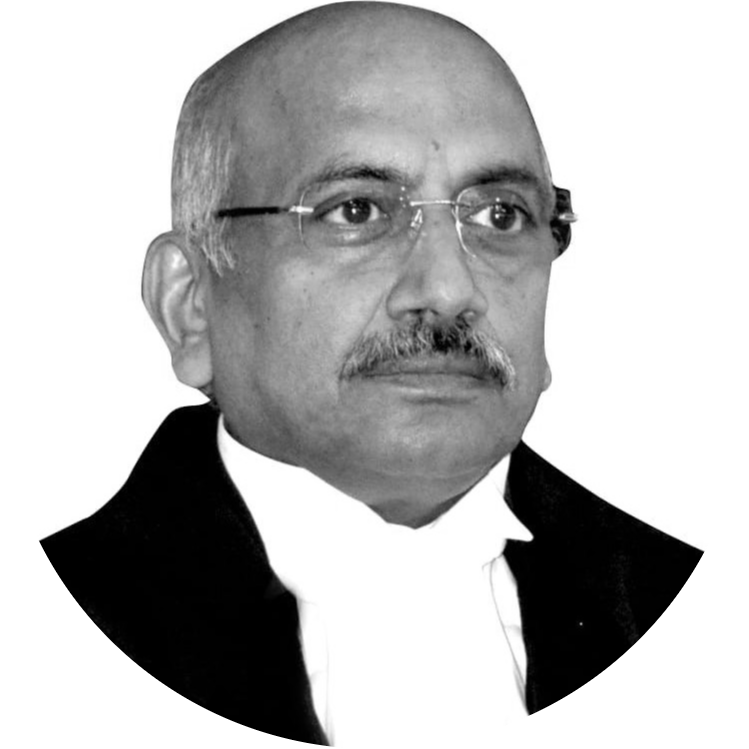Hemant Gupta

Hemant Gupta
Former Judge of Supreme Court of India
Assumed Office2nd Nov, 2018
Retired On16th Oct, 2022
Previously
Chief Justice of the Madhya Pradesh High CourtMarch 18th 2017
Acting Chief Justice of the Patna High CourtOctober 29th 2016
Permanent Judge of the Patna High CourtFebruary 8th 2016 - October 28th 2016
Executive Chairman of the State Legal Services Authority, ChandigarhJuly 2012 - January 2016
Permanent Judge of the Punjab and Haryana High CourtJuly 2nd 2002
Additional Advocate General of Punjab1997-1999
EnrollmentJuly 1980
Profile
Career as an Advocate
Justice Hemant Gupta enrolled as an advocate in July 1980 and began practicing in the Chandigarh District Court before shifting his practice to the Punjab & Haryana High Court. As an advocate, he primarily argued in Civil cases. He was appointed as Additional Advocate General, Punjab in 1997 and served until 1999.
Career as a Judge
Shortly thereafter on July 2nd, 2002, he was appointed as a Judge of Punjab & Haryana HC, following in the footsteps of his father who was once Chief Justice of the same HC. He was a member of the Computer Committee at the Punjab & Haryana HC for over a decade. The Committee is credited for introducing a Case Management System which digitised the court’s records and introduced an E-filing system.
Justice Gupta was the Executive Chairman of the State Legal Services Committee, Chandigarh between July 2012 and January 2016. On February 8th 2016, he was transferred to the Patna HC. He was later appointed as the Acting Chief Justice of the Patna HC on October 29th, 2016. He was transferred once again on March 18th, 2017, to the Madhya Pradesh HC to serve as Chief Justice. Before Justice Gupta was appointed Chief Justice of the Madhya Pradesh High Court, him and his wife was the subject of a probe by the Enforcement Directorate. His wife, Alka Gupta, was an alleged beneficiary of a money laundering scheme.
Justice Gupta was elevated to the Supreme Court on November 2nd, 2018. He is set to retire on October 16th, 2022 after serving a tenure of nearly four years. His leanings towards creating a computerised judicial system followed him to the SC as well. In June 2020 he created a stir along with Justices D.Y. Chandrachud and Ajay Rastogi when they did not bring any paper files into the courtroom and chose to hear matters and take notes entirely on their laptops.
Post-Retirement
On December 22nd, 2022, Justice Gupta was appointed as the chairperson of the New Delhi International Arbitration Centre by the Union government.
Tenure at the Supreme Court in Numbers
Figure 1 shows that Justice Gupta has been a part of 535 Benches and has authored 190 Judgments during his tenure so far.
Figure 2 shows that a majority of the Judgments Justice Gupta has authored are for Service (18%), Property (15%) and Criminal (12%) matters.
Notable Judgments
Justice Gupta was a member of the 5-Judge Constitution Bench in Jaishri Laxmanrao Patil v Chief Minister (2021), also known as the Maratha Reservation Case. The Maharashtra Socially and Educationally Backward Classes, Act 2018 was challenged in the Supreme Court for granting reservations to the Maratha community beyond the 50% cap for reservations placed by the SC in Indra Sawhney v Union of India (1992). The Bench held that the Maratha reservations did not qualify as an exception to this limit and the Act was struck down. The Bench further held that the Constitution (One Hundred and Second) Amendment Act, 2018 took away States’ powers to identify backward classes for the purposes of reservations.
In Madras Bar Association v Union of India (2021), several provisions of the Tribunals Reforms (Rationalization and Conditions of Service) Ordinance, 2021 were challenged. The Ordinance dictated the terms of service of Tribunal members, including their maximum tenure and the appointment process, and gave the Union additional control over the administration of Tribunals. A 3-Judge Bench comprising Justices L. Nageswara Rao, S. Ravindra Bhat, and Hemant Gupta struck down the Ordinance in a 2:1 split with Justice Gupta dissenting. In their majority opinion, Justices L Nageswara Rao and S Ravindra Bhat stated that clauses in the Ordinance violated the independence of the judiciary and were contrary to earlier SC decisions which set the terms of all such chairmen and members of Tribunals to be five years. In his dissenting opinion, Justice Gupta held that the legislation was valid and could not be struck down due to the possibility of certain provisions being misused.
In Hitesh Varma v State of Uttarakhand, the petitioner was in the midst of a land dispute with the accused when the latter allegedly broke into his house and hurled caste-based abuses at the petitioner. A case was filed against the accused under Section 3 of the Scheduled Castes and Scheduled Tribes (Prevention of Atrocities) Act, 1989. Justice Hemant Gupta authored the Judgment for the 3-Judge Bench and held that the offence under the Act requires the insult or intimidation to take place in ‘public view’. In this case, the Bench held that the offence does not apply as the insults were hurled inside the petitioner’s home. The Bench dismissed the petitioners claim.
